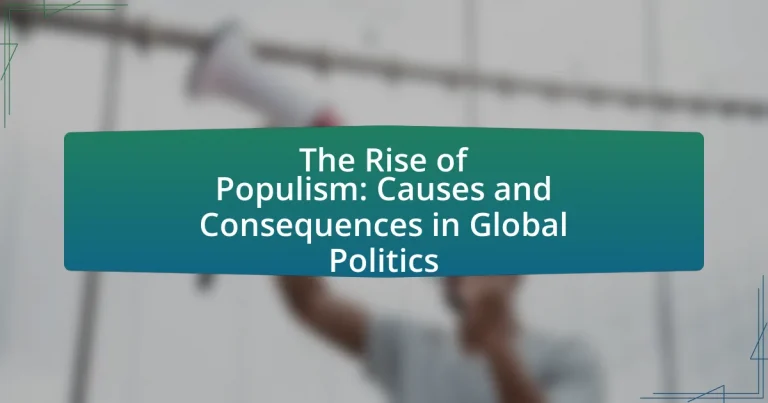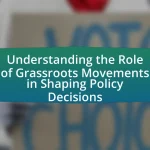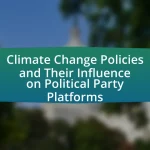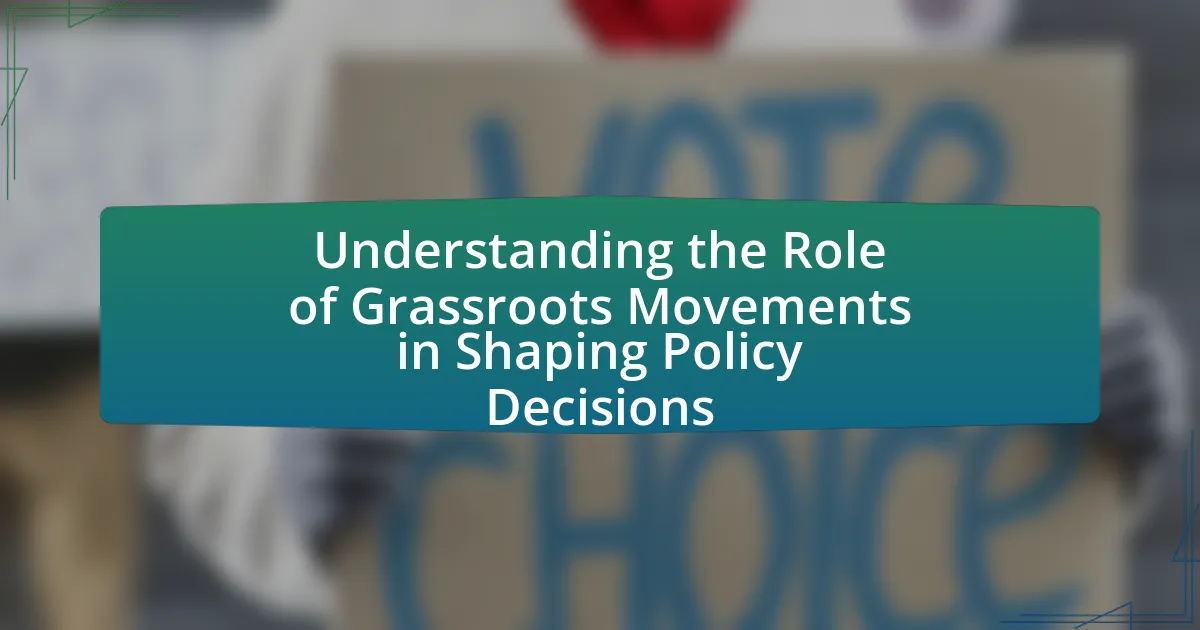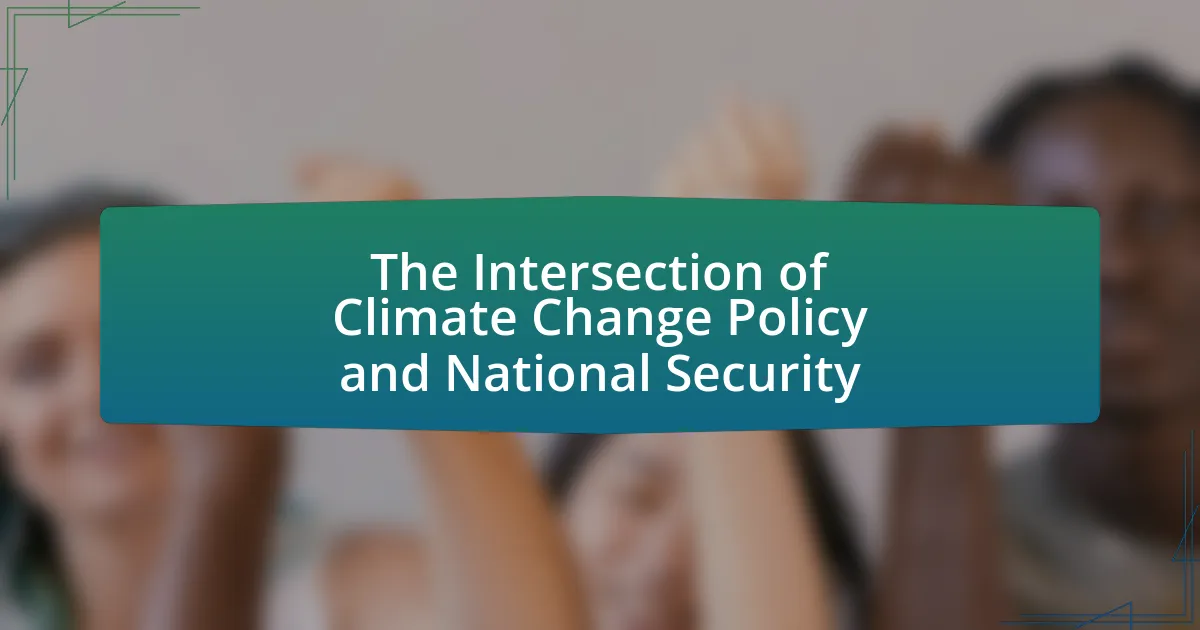Populism is a political approach that seeks to represent the interests of ordinary people against a perceived elite, emerging in global politics due to factors such as economic inequality, political disenfranchisement, and cultural backlash against globalization. The article examines the defining characteristics of populism, including its anti-establishment sentiment and the role of charismatic leaders, while highlighting historical contexts that have contributed to its rise, such as economic crises and social factors. It also discusses the consequences of populism on democratic institutions, social cohesion, and economic stability, as well as strategies for societies to respond effectively to its challenges. Key insights include the importance of inclusive political dialogue, education, and addressing the root causes of populism to strengthen democratic resilience.
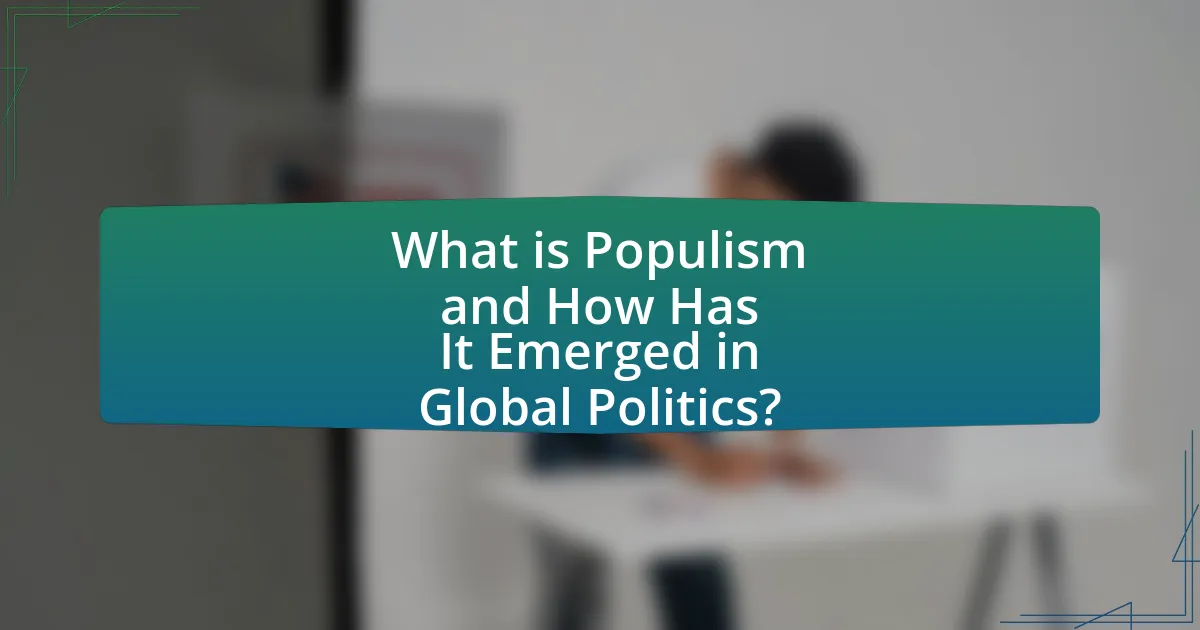
What is Populism and How Has It Emerged in Global Politics?
Populism is a political approach that seeks to represent the interests of ordinary people, often contrasting them against a perceived elite or establishment. It has emerged in global politics through various factors, including economic inequality, political disenfranchisement, and cultural backlash against globalization. For instance, the 2008 financial crisis led to widespread discontent with traditional political parties, resulting in the rise of populist leaders like Donald Trump in the United States and Jair Bolsonaro in Brazil. These leaders capitalized on public frustration, using rhetoric that emphasized a divide between the “common people” and the “corrupt elite.” Additionally, the increasing influence of social media has facilitated the rapid spread of populist messages, allowing leaders to connect directly with their supporters and bypass traditional media channels.
What are the defining characteristics of populism?
Populism is characterized by a dichotomy between “the people” and “the elite,” emphasizing the idea that the common people are oppressed by a corrupt elite. This ideology often manifests through charismatic leadership, where leaders claim to represent the will of the people against established institutions. Additionally, populism typically involves a strong anti-establishment sentiment, advocating for direct democracy and often employing emotional rhetoric to mobilize support. Historical examples include leaders like Hugo Chávez in Venezuela and Donald Trump in the United States, who both utilized populist strategies to galvanize their bases by portraying themselves as champions of the ordinary citizen against the political establishment.
How do populist movements differentiate themselves from traditional political parties?
Populist movements differentiate themselves from traditional political parties by positioning themselves as representatives of the “common people” against a perceived corrupt elite. Unlike traditional parties, which often adhere to established ideologies and institutional frameworks, populist movements emphasize direct communication with the public, often utilizing charismatic leaders to mobilize support. For example, leaders like Donald Trump in the United States and Jair Bolsonaro in Brazil have employed anti-establishment rhetoric to galvanize their bases, appealing to widespread discontent with conventional political structures. This approach is supported by research indicating that populism thrives in contexts of economic inequality and political disenchantment, as seen in studies by Cas Mudde and Cristóbal Rovira Kaltwasser, which highlight the rise of populism in response to failures of mainstream parties to address citizens’ concerns.
What role does rhetoric play in populist ideologies?
Rhetoric plays a crucial role in populist ideologies by simplifying complex issues and appealing to the emotions of the masses. Populist leaders often use persuasive language, slogans, and narratives that resonate with the public’s feelings of disenfranchisement and frustration, effectively creating an “us versus them” mentality. For instance, during the 2016 U.S. presidential election, Donald Trump utilized rhetoric that emphasized national identity and economic grievances, which mobilized a significant voter base. This strategic use of rhetoric not only fosters a sense of belonging among supporters but also frames political discourse in a way that marginalizes established elites and institutions, thereby reinforcing the populist agenda.
What historical contexts have contributed to the rise of populism?
The rise of populism has been significantly influenced by historical contexts such as economic crises, social inequality, and political disenfranchisement. Economic downturns, like the Great Depression in the 1930s, often lead to widespread discontent with established political systems, prompting populist movements that promise to address the grievances of the “common people.” Additionally, increasing social inequality, particularly in the late 20th and early 21st centuries, has fueled populist sentiments as marginalized groups seek representation and solutions to their struggles. Political disenfranchisement, where citizens feel disconnected from traditional political parties, has also contributed to the rise of populism, as seen in various countries where leaders have capitalized on this sentiment to gain support. These contexts illustrate how economic, social, and political factors intertwine to foster populist movements.
How have economic crises influenced populist sentiments?
Economic crises have significantly amplified populist sentiments by creating widespread discontent and distrust in established political institutions. During economic downturns, such as the 2008 financial crisis, unemployment rates soared, and many individuals experienced financial instability, leading to a perception that traditional political elites failed to address their needs. This disillusionment often drives voters towards populist leaders who promise to prioritize the interests of the “common people” over the elite. For instance, in the aftermath of the 2008 crisis, countries like Greece and the United States saw a rise in populist movements, with parties such as Syriza and figures like Donald Trump gaining traction by capitalizing on economic grievances and advocating for radical change.
What social factors have fueled the growth of populist movements?
Social factors fueling the growth of populist movements include economic inequality, cultural backlash, and distrust in traditional political institutions. Economic inequality has led to a sense of disenfranchisement among lower and middle-class citizens, prompting them to seek alternatives to established parties. For instance, the rise of populist leaders in various countries correlates with increasing income disparity, as seen in the United States and Brazil, where populist rhetoric often targets the elite. Cultural backlash arises from rapid social changes, such as immigration and globalization, which some groups perceive as threats to their identity and values, driving them towards populist ideologies that promise to restore a perceived lost status. Additionally, widespread distrust in traditional political institutions, fueled by corruption scandals and ineffective governance, has led citizens to embrace populist movements that claim to represent the “will of the people.” This combination of economic, cultural, and institutional factors creates a fertile ground for the rise of populism globally.
Why is populism gaining traction in various regions around the world?
Populism is gaining traction in various regions around the world due to widespread dissatisfaction with traditional political elites and institutions. This discontent is often fueled by economic inequality, cultural anxieties, and a perceived disconnect between the government and the populace. For instance, the 2008 financial crisis led to significant economic hardship, prompting many to seek alternatives to established parties, which they blame for their struggles. Additionally, the rise of social media has enabled populist leaders to communicate directly with the public, bypassing traditional media filters and amplifying their messages. This direct engagement has proven effective in mobilizing support, as seen in the electoral successes of populist figures in countries like Brazil, Hungary, and the United States.
How do cultural and identity issues intersect with populist politics?
Cultural and identity issues significantly intersect with populist politics by shaping the narratives that populist leaders use to mobilize support. Populist movements often exploit cultural anxieties and identity crises, framing themselves as champions of the “common people” against perceived elites who threaten traditional values and national identity. For instance, in the United States, the rise of populism has been linked to concerns over immigration and cultural change, as seen in the support for Donald Trump’s “America First” agenda, which resonated with voters feeling marginalized by globalization and demographic shifts. This intersection is further evidenced by the success of populist parties in Europe, such as the National Rally in France, which capitalizes on fears surrounding national identity and cultural preservation in the face of increasing immigration.
What impact does globalization have on the rise of populism?
Globalization significantly contributes to the rise of populism by creating economic disparities and cultural anxieties among populations. As globalization increases trade and migration, it often leads to job losses in certain sectors, particularly in manufacturing, which fuels resentment towards elites and institutions perceived as benefiting from these changes. For instance, the 2016 Brexit vote in the UK and the election of Donald Trump in the United States exemplify how economic dislocation and fears of cultural dilution can drive populist sentiments. Studies indicate that regions most affected by globalization, such as those experiencing factory closures, show higher support for populist parties, highlighting the direct correlation between economic impacts of globalization and the appeal of populist rhetoric.
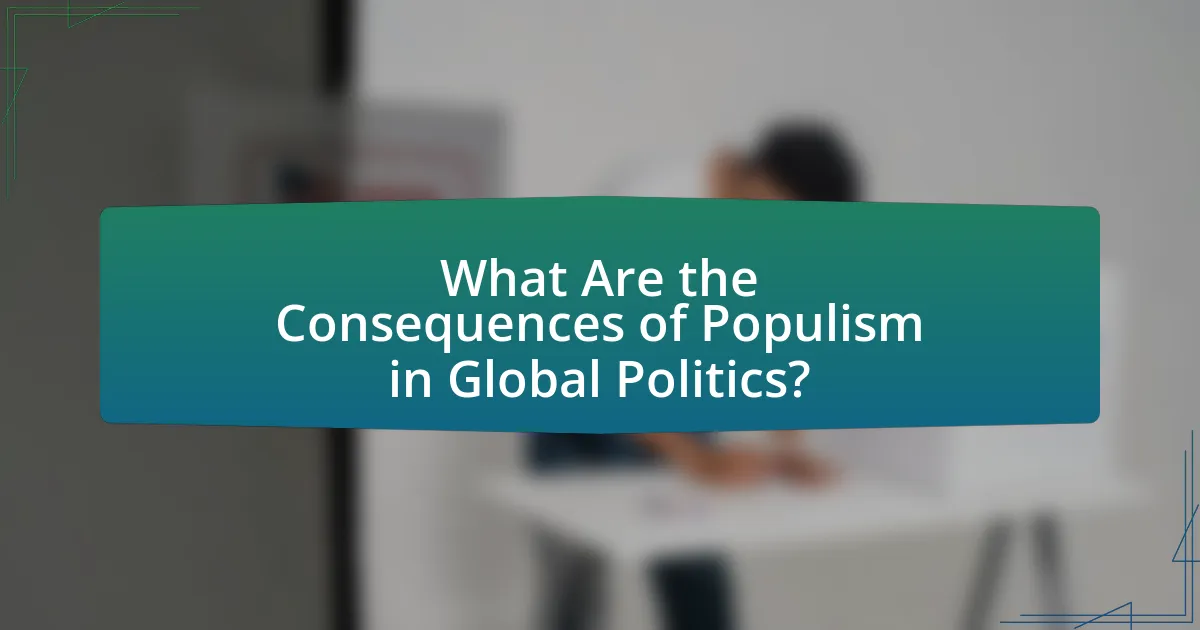
What Are the Consequences of Populism in Global Politics?
The consequences of populism in global politics include increased polarization, erosion of democratic norms, and challenges to international cooperation. Populist movements often exploit societal divisions, leading to heightened political and social tensions, as seen in countries like the United States and Brazil, where populist leaders have mobilized support by framing issues in binary terms. Additionally, populism can undermine democratic institutions by promoting authoritarian tendencies, as evidenced by Hungary’s Viktor Orbán, who has curtailed press freedoms and judicial independence. Furthermore, populist rhetoric frequently prioritizes national interests over global collaboration, complicating efforts to address transnational issues such as climate change and migration, which require cooperative solutions.
How does populism affect democratic institutions?
Populism affects democratic institutions by undermining their legitimacy and stability. Populist leaders often challenge established political norms and institutions, portraying them as corrupt or out of touch with the people’s needs. This can lead to a concentration of power in the executive branch, as seen in countries like Hungary, where Prime Minister Viktor Orbán has weakened judicial independence and curtailed media freedom, thereby eroding checks and balances. Additionally, populism can polarize societies, creating divisions that hinder constructive political discourse and compromise, which are essential for healthy democratic functioning.
What challenges does populism pose to the rule of law?
Populism poses significant challenges to the rule of law by undermining legal institutions and promoting authoritarian governance. Populist leaders often prioritize their personal agendas over established legal frameworks, leading to the erosion of judicial independence and the politicization of legal processes. For instance, in Hungary, Prime Minister Viktor Orbán’s government has systematically weakened the judiciary and curtailed media freedoms, which illustrates how populism can disrupt the balance of power essential for upholding the rule of law. Additionally, populist rhetoric frequently vilifies legal norms and institutions, framing them as obstacles to the will of the people, which can further diminish public trust in the legal system and encourage disregard for laws that do not align with populist objectives.
How does populism influence electoral processes and outcomes?
Populism influences electoral processes and outcomes by reshaping political discourse and mobilizing voter sentiment against established elites. This phenomenon often leads to the rise of populist candidates who appeal directly to the “common people,” positioning themselves as outsiders challenging the status quo. For instance, the election of Donald Trump in the United States in 2016 exemplifies how populist rhetoric can galvanize support by emphasizing nationalism and anti-establishment sentiments, resulting in significant electoral success. Additionally, studies indicate that populist movements can increase voter turnout by engaging disenfranchised populations, as seen in various European elections where populist parties gained substantial seats, reflecting a shift in traditional voting patterns.
What are the social implications of populist governance?
Populist governance often leads to increased polarization within society. This polarization manifests as a divide between the “elite” and the “common people,” fostering an environment of distrust towards established institutions and traditional political parties. For instance, research by the Pew Research Center indicates that populist movements can exacerbate social tensions, as they frequently appeal to emotions and identity politics rather than rational discourse. Additionally, populist leaders may undermine democratic norms, which can result in reduced civic engagement and a decline in social cohesion, as seen in various countries where populism has gained traction, such as Hungary and Brazil. These social implications highlight the potential for populist governance to disrupt societal harmony and democratic processes.
How does populism impact social cohesion and polarization?
Populism negatively impacts social cohesion and increases polarization by fostering an “us versus them” mentality. This political approach often emphasizes division between the elite and the common people, leading to heightened distrust among different social groups. For instance, research by Cas Mudde and Cristóbal Rovira Kaltwasser indicates that populist movements can exacerbate societal divides by framing political discourse around antagonistic narratives, which can alienate marginalized communities and intensify conflicts. Consequently, the rise of populism correlates with increased social fragmentation and a decline in collaborative civic engagement, as evidenced by rising partisan divides in countries experiencing populist leadership.
What are the effects of populism on minority rights and representation?
Populism often undermines minority rights and representation by prioritizing the will of the majority over the needs of marginalized groups. This trend is evident in various populist movements that have enacted policies or rhetoric that marginalize minorities, such as immigrants, ethnic groups, and LGBTQ+ individuals. For instance, in Hungary, the populist government has implemented measures that restrict the rights of refugees and asylum seekers, reflecting a broader pattern where populist leaders appeal to nationalist sentiments at the expense of minority protections. Additionally, studies have shown that populist rhetoric can lead to increased discrimination and social division, as seen in the rise of anti-immigrant sentiments in countries like Italy and the United States. These dynamics illustrate how populism can erode the legal and social frameworks that support minority rights and representation.
What economic consequences arise from populist policies?
Populist policies often lead to economic consequences such as increased government spending, budget deficits, and market instability. These policies typically prioritize short-term gains over long-term economic health, resulting in unsustainable fiscal practices. For instance, during the populist government of Hugo Chávez in Venezuela, extensive social programs were funded through oil revenues, leading to a significant budget deficit when oil prices fell, ultimately resulting in hyperinflation and economic collapse. Additionally, populist measures can create uncertainty in markets, as seen in the aftermath of the Brexit vote, where the decision to leave the EU led to immediate currency depreciation and volatility in investment. Such economic consequences highlight the risks associated with populist governance, where immediate populist gains can undermine broader economic stability.
How do populist economic strategies affect national and global markets?
Populist economic strategies typically lead to increased volatility in national and global markets. These strategies often involve protectionist measures, such as tariffs and trade barriers, which can disrupt established trade relationships and create uncertainty among investors. For instance, the implementation of tariffs by the United States during the Trump administration resulted in retaliatory measures from other countries, leading to a decline in global trade volumes by approximately 3% in 2019, according to the World Trade Organization. Additionally, populist policies can result in fiscal imbalances, as governments may increase spending to satisfy voter demands, leading to higher national debt and potential credit downgrades. This fiscal instability can further deter foreign investment, as seen in countries like Venezuela, where populist policies contributed to hyperinflation and economic collapse. Overall, populist economic strategies can create significant disruptions in both national economies and the interconnected global market.
What are the long-term implications of populist economic policies?
Long-term implications of populist economic policies include increased government intervention in markets, potential fiscal instability, and heightened social divisions. These policies often prioritize short-term gains for specific groups, leading to unsustainable economic practices. For instance, countries like Venezuela experienced hyperinflation and economic collapse after implementing populist policies that disregarded market fundamentals. Additionally, populist policies can erode institutional trust and undermine democratic norms, as seen in Hungary, where economic decisions have increasingly centralized power. Such outcomes suggest that while populist economic policies may provide immediate relief, they often result in long-lasting negative effects on economic stability and social cohesion.
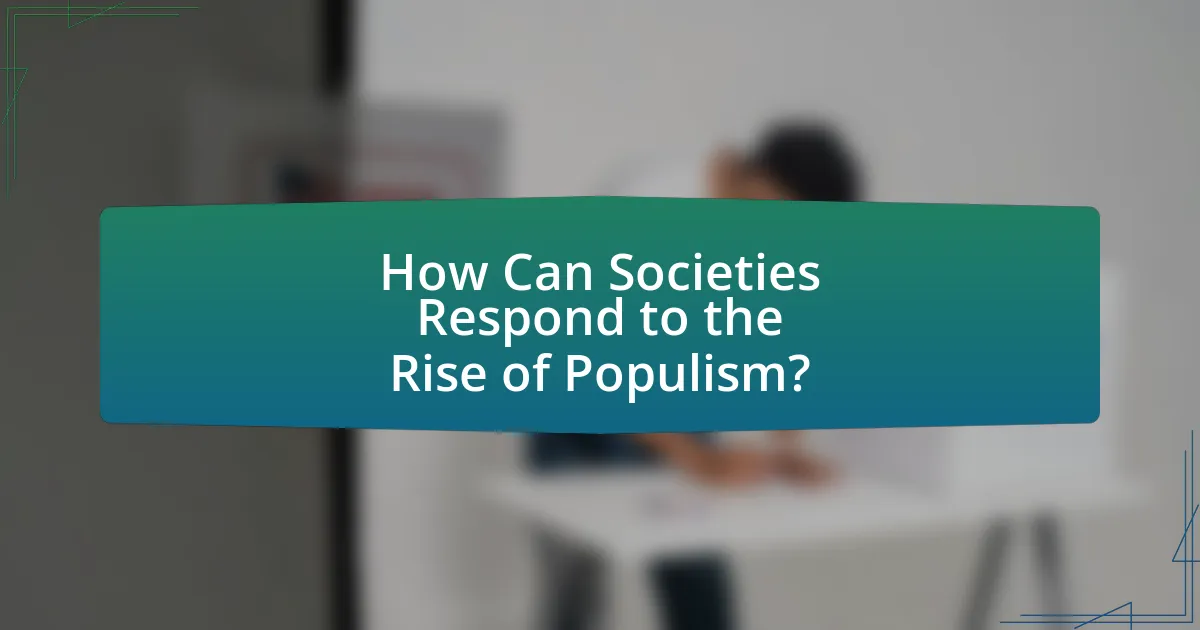
How Can Societies Respond to the Rise of Populism?
Societies can respond to the rise of populism by promoting inclusive political dialogue and strengthening democratic institutions. Inclusive dialogue allows for diverse perspectives to be heard, reducing polarization and addressing the grievances that often fuel populist sentiments. Strengthening democratic institutions, such as independent media and judiciary, ensures accountability and transparency, which can mitigate the appeal of populist leaders who often exploit public discontent. Historical examples, such as the rise of populism in Europe during the 2010s, demonstrate that societies that engaged in open discussions and reinforced democratic norms were more resilient against populist movements.
What strategies can be employed to counteract populist narratives?
To counteract populist narratives, strategies such as promoting fact-based discourse, enhancing media literacy, and fostering inclusive political dialogue can be employed. Fact-based discourse involves presenting accurate information and debunking misinformation, which is crucial as studies show that misinformation can significantly influence public opinion. Enhancing media literacy equips individuals with the skills to critically evaluate sources and discern credible information, thereby reducing susceptibility to populist rhetoric. Fostering inclusive political dialogue encourages diverse perspectives and addresses the grievances that populist movements often exploit, as evidenced by research indicating that inclusive policies can mitigate the appeal of populism by addressing underlying social and economic issues.
How can political parties adapt to the challenges posed by populism?
Political parties can adapt to the challenges posed by populism by embracing inclusive policies that address the concerns of marginalized groups. This approach involves actively engaging with constituents to understand their grievances and incorporating their feedback into party platforms. For instance, research indicates that parties that prioritize social justice and economic equity can mitigate the appeal of populist rhetoric, as seen in the success of progressive parties in various countries. Additionally, fostering transparent communication and building trust through accountability can counteract the distrust that populism often exploits. By focusing on these strategies, political parties can effectively respond to the rise of populism and maintain their relevance in the political landscape.
What role does education play in addressing populist sentiments?
Education plays a crucial role in addressing populist sentiments by fostering critical thinking and promoting informed citizenship. By equipping individuals with the skills to analyze information and engage in constructive dialogue, education can counteract the simplistic narratives often propagated by populist movements. Research indicates that higher levels of education correlate with lower susceptibility to populist rhetoric, as educated individuals are more likely to question oversimplified solutions and seek evidence-based policies. For instance, a study by the Pew Research Center found that individuals with a college degree are less likely to support populist parties compared to those with lower educational attainment, highlighting the protective effect of education against populist ideologies.
What best practices can be implemented to strengthen democratic resilience?
To strengthen democratic resilience, implementing inclusive political participation is essential. This practice ensures that diverse voices are represented in decision-making processes, which can mitigate the appeal of populist movements that often thrive on exclusion and division. Research indicates that countries with higher levels of civic engagement and political participation tend to have more stable democracies. For instance, the Varieties of Democracy (V-Dem) project highlights that nations with robust civil societies and active citizen involvement experience lower risks of democratic backsliding. Additionally, promoting media literacy and critical thinking among citizens can empower them to discern misinformation and resist populist rhetoric, further reinforcing democratic structures.
How can civic engagement be promoted to combat populism?
Civic engagement can be promoted to combat populism by fostering inclusive dialogue and encouraging participation in democratic processes. Initiatives such as community forums, town hall meetings, and civic education programs can empower citizens to voice their concerns and engage with political representatives. Research indicates that increased civic participation leads to a more informed electorate, which can counteract the simplistic narratives often used in populist rhetoric. For instance, a study by the Pew Research Center found that communities with higher levels of civic engagement tend to have lower support for populist candidates, demonstrating the effectiveness of active citizen involvement in strengthening democratic values.
What policies can be enacted to address the root causes of populism?
To address the root causes of populism, policies must focus on economic inequality, political disenfranchisement, and social fragmentation. Implementing progressive taxation can reduce economic disparities, as evidenced by studies showing that countries with lower income inequality tend to have less populist sentiment. Enhancing democratic engagement through reforms such as ranked-choice voting and increased access to political participation can mitigate feelings of disenfranchisement, supported by research indicating that inclusive political systems foster stability. Additionally, investing in social cohesion initiatives, such as community-building programs and educational reforms that promote critical thinking, can counteract social fragmentation, as demonstrated by successful case studies in various nations. These targeted policies can effectively address the underlying issues that fuel populism.
What lessons can be learned from past populist movements?
Lessons from past populist movements include the importance of addressing economic inequality, the dangers of scapegoating minorities, and the need for strong democratic institutions. Economic inequality often fuels populist sentiments, as seen in the rise of movements like Occupy Wall Street, which highlighted wealth disparities. Scapegoating, evident in the rhetoric of leaders like Donald Trump, can lead to social division and violence. Furthermore, the erosion of democratic norms, as observed in Hungary under Viktor Orbán, underscores the necessity of maintaining robust institutions to safeguard against authoritarianism. These lessons emphasize the need for inclusive policies and the protection of democratic values to mitigate the risks associated with populism.
How can historical examples inform current political strategies?
Historical examples can inform current political strategies by providing insights into voter behavior, effective messaging, and the consequences of policy decisions. For instance, the rise of populist movements in the early 20th century, such as the Progressive Era in the United States, demonstrated how addressing economic inequality and advocating for social reforms can mobilize public support. This historical context shows that contemporary political strategies can benefit from emphasizing economic justice and grassroots engagement, as seen in recent populist campaigns across various nations. Additionally, the backlash against globalization in the late 20th century, exemplified by the Brexit vote, highlights the importance of addressing national identity and sovereignty in political discourse. These historical precedents validate the effectiveness of aligning political strategies with the concerns and aspirations of the electorate.
What common pitfalls should be avoided in responding to populism?
Common pitfalls to avoid in responding to populism include dismissing populist sentiments as irrational, which can alienate potential supporters. Engaging in personal attacks against populist leaders often backfires, reinforcing their narrative of being outsiders fighting against the elite. Additionally, failing to address the legitimate grievances that fuel populism can lead to further polarization. Research indicates that ignoring economic and social issues, such as inequality and job insecurity, can exacerbate populist movements, as seen in various global contexts. Therefore, a nuanced approach that acknowledges underlying concerns while promoting constructive dialogue is essential.
